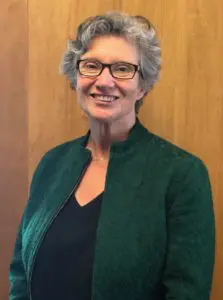 By Linda Jackson AAI Program Director
By Linda Jackson AAI Program Director
We’re looking at an immense pivot in our corner of the world, affecting forever our society, economy, and politics because of gaps in our health system. According to the World Health Organization, in 2020, the United States ranks 37th internationally for health care, and number 1 in health care spending per capita. Too many people do not have health insurance or sick leave. Healthcare workers do not have the medical equipment they need to protect themselves or care for their patients. As a result, our healthcare system is not able to take care of a lot of people who get sick at the same time. Marin’s health leaders know that Marin has a higher percentage of older people than most other communities. Because the immune system becomes weaker over the years, older people are at risk for premature death from the new virus. There are unique challenges that older adults and people with disabilities face at this time of sheltering in place. They might face profound loneliness of being unable to be with their families, friends, and caregivers. They might worry about whether they will have a caregiver or enough food or money for the bills and insurance. They might wonder about how to avoid the scammers, and about how to find meaning in living when isolated-in-place. The wonderful thing is that the world is paying attention! There are bright spots happening right now in Marin as County and local staff, nonprofits, and neighbors are checking in with the older adults in their communities and finding that practically everyone is okay. Best of all, some are calling back for help knowing someone is there who cared enough to contact them. New ways of service delivery such as Whistlestop’s intergenerational ‘caring calls’ program, West Marin Senior Services food deliveries, and ‘senior shopping hours’ at United are helping older people get by these days. And, on a more global level, I sense Mother Earth taking a big sigh of relief as the world gives her a break from carbon emissions and noise from a billion cars and trucks. National, state and local agencies advocated for years for updated policies, right funding, secure and sustainable Social Security and Medicare, and new programs to meet the needs of a growing older population. What worked four generations ago is not working today. Governor Newsom recognized this when he started the California Master Plan on Aging planning process. Across the nation, reporters are discovering the inequities facing older adults. Will the national leaders also use this crisis to imagine a different world? As I read stories about people who are sick with COVID-19, or from the people who are caring for them, I’m struck by the image of deep loneliness all around. We see people dying alone, surrounded by medical equipment, isolated in a sea of others, far from their loved ones. Why do we not have as much attention to the moments of passing as we do to sustaining breath? Dying is an immensely sad time of saying good-bye. It feels so wrong that in 2020, in such a wealthy state and nation, death has to be so profoundly lonely when it should be a time of being surrounded by great love much as we surround new life when it arrives at birth. Where is the discussion about how to help people feel the sense of relief that comes from being prepared for passing on with directives, a will, key decisions for your loved ones, along with messages of love? As we work to feed, treat, care and connect with our clients, let us also help them have the peace of mind that comes from being prepared and from knowing that all their wishes will be met – the sense of relief and comfort is worth it. This is one of the greatest gifts we can help people have in the end. My vision is that everyone has made their wishes known, that we have cozy rooms (like birthing rooms) in hospitals for people to die in, that we have the protections so that family and friends can be present with their loved ones so that no one dies alone, and that we have as many sources of information about the last passage as the first passage of life. We have a window to share our experiences with elected leaders so that we can build a healthcare system quite different from the one we have now. We must have a universal continuum of care from primary prevention to post-acute and dying care. We are only as safe as those who are most at risk. We don’t need fear of one another (let’s get rid of “social distancing” and say “physical distancing,” okay?) at this time. We will get through this. We will speak up for the big changes:
- Increase social security and SSI benefits (SSI Restoration Act) and Medicaid
- Better protections for older people, people who are disabled, and the people who care for them
- Enough equipment and protections for frontline workers and for residential facilities
- Paid sick leave for all workers
- Healthcare for all who live in the US.
Let’s hold each other, from our dearest ones to the unknown person across the street, close virtually. The fact is that, in supporting each other, we will make our way to a better place ~


